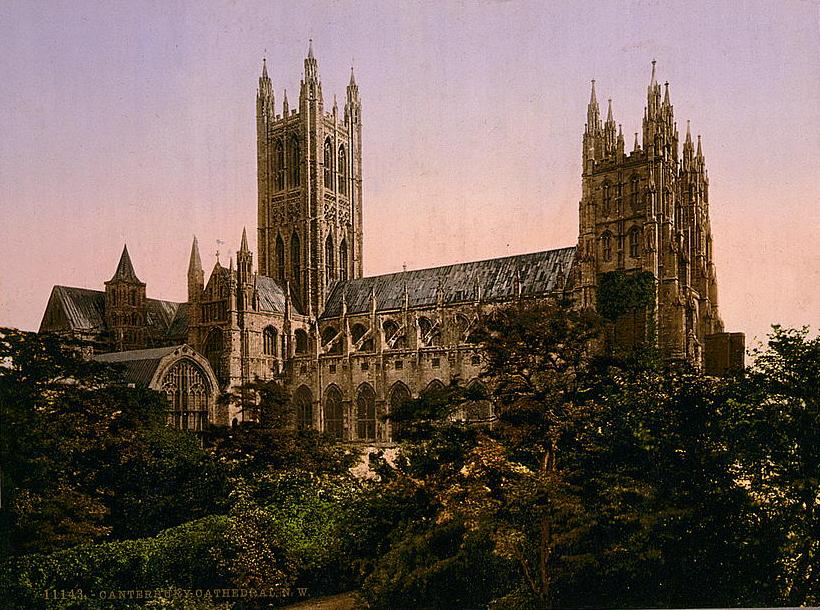Holy Sonnet 14
John Donne

Early Life
- 1576-1631
- English poet, satirist, lawyer and cleric
- Recusant Catholic
- Father died when he was four years old
- Raised by mother (related to Thomas Moore)
- Studied at Hert Hall (Now Hertford College), then at Cambridge
- Couldn't graduate, didn't take Oath Of Supremacy
- Became a lawyer, then the Chief Secretary to the Lord Keeper of the Great Seal

Marriage
- Married Anne Moore in 1601
- Niece of his boss (LKOTGS)
- Against wishes of both her father and the LKOTGS
- Marriage ruined his career, even sent him to prison
- Forced to retire in Pyrford
- In financial insecurity all the time
- His wife bore him 12 children
- 5 children died, either in childbirth or before age 10
- Noted that a dead child meant one less mouth to feed
- Wrote Biathanatos in defense of suicide
- His wife died in 1617
Career
- Elected to Parliament in 1602
- Found a few wealthy patrons that supported him
- Eventually was ordained into the Church of England
- Became Royal Chaplain
- Almost died of typhus, wrote several poems on pain and death.
- Coined some phrases like "no man is an island" and "for whom the bell tolls"

Death
- March 31, 1631
- Probably died of stomach cancer
- Buried in St. Paul's Cathedral
Holy Sonnet 14
- Probably wrote it around 1618
- Written right after he was ordained into the COE
- Written in loose iambic petrameter
- Petrarchan sonnet
- ABBAABBACDDCEE rhyme scheme

Video
The Poem
Basic Meaning
- The poet asks a "three-personed" God to batter his heart
- He feels that God has only been knocking politely
- He asks God to overthrow him, to attack his heart as if it were the gates of a fortressed town
- His heart is like a town captured by an enemy, he wants God to take it back for himself
- His "reason" has been taken captive, and seems "weak or untrue"
- The poet is like a maiden betrothed to God's enemy, he asks God to “divorce, untie,
or break that knot again,” in order to take him prisoner
Paradoxes
- The poet feels that he can only stand when he is completely knocked down by God
- He can only be free once he is God's prisoner
- He can only be chaste once God "ravishes" him
- The speaker is asking God to perform violent actions that would normally be considered sinful in order to help the poet love God

Word Choice
- Up until this point, Donne feels that God has only chosen to "knock, breathe, shine and seek to mend"
- Donne asks God to "break, blow, burn and make me new"
- He compares himself to an occupied land, he needs God to "batter" the gates
- Finally, he states that God must "enthrall" and "ravish" him, in order to make him "free" and "chaste"

Analysis
- Just as Donne was divided between the RCC and the COE, he feels divided between his carnal desires (youth) and his religious spirituality (just been ordained)
- His "reason" that should be helping him believe in God has instead made it difficult for him to have true faith
- He feels "betrothed" to evil, and needs God to "divorce" him
- The speaker needs God to use his "force" to make him "new"
QUIZLET
http://quizlet.com/40272863/holy-sonnet-14-flash-cards/
Bibliography
"John Donne." Poetry Foundation. Poetry Foundation, n.d. Web. 05 Apr. 2014. <http://www.poetryfoundation.org/bio/john-donne>.
"Holy Sonnet 14." BritLitWiki. Web. 6 Apr. 2014. <http://britlitwiki.wikispaces.com/Holy+Sonnet+14>.
"The Life of John Donne." The Life of John Donne (1572-1631). Web. 04 Apr. 2014. <http://www.luminarium.org/sevenlit/donne/donnebio.htm>.
SparkNotes Editors. “SparkNote on Donne’s Poetry.” SparkNotes.com. SparkNotes LLC. 2002. Web. 31 Mar. 2014.
Holy Sonnet 14 John Donne
By jacquespaye
Holy Sonnet 14 John Donne
- 3,152


